Jesus Is Better Than Melchizedek
“Now consider how great this man was … ” Such was the high opinion of the inspired penman regarding Melchizedek in Hebrews 7:4. The greatness of this unique individual is matched only by the mystery that surrounds him. In the historical account of his one appearance, recorded in Genesis 14:17–24, he uttered only 28 words in the English text, and the original Hebrew expressed his thoughts in only 14 words.
Like an actor in a cameo role, he entered briefly onto the stage of the divine drama, only to exit just as quickly. For generations of Bible students, myriad questions have swirled around his person and role. Who exactly was he? What part does he play in the drama of redemption? And, most importantly for us, what is his relationship to Messiah Jesus in the argument of the Book of Hebrews? We examine three aspects of this great character in order to answer those questions: (1) Melchizedek the person; (2) Melchizedek the priest; and (3) Melchizedek the priest-king.
Melchizedek the Person
Hebrews 7:1–3 sums up the account in Genesis 14 and begins to develop Melchizedek’s uniqueness. “For this Melchizedek, king of Salem, priest of the Most High God, who met Abraham returning from the slaughter of the kings, and blessed him, To whom also Abraham gave a tenth part of all; first being, by interpretation, King of righteousness, and after that also King of Salem, which is, King of peace; Without father, without mother, without descent, having neither beginning of days nor end of life, but made like unto the Son of God, abideth a priest continually.” A number of different ideas about the identity of Melchizedek have been offered by interpreters over the years. The authors of the Dead Sea Scrolls viewed Melchizedek as something of a super-angel who would play a special role in end-time events. Later rabbis taught that he was Shem, the son of Noah. Neither of these views can be supported by the texts in Genesis and Hebrews. Earlier in Hebrews the author presented Jesus as better than the angels (Heb. 1:4–14). If Melchizedek was an angel, and Jesus is better than the angels, why would Jesus be a priest like Melchizedek? The Shem interpretation suffers from the fact that Hebrews 7:3 states that no genealogy is recorded for Melchizedek, whereas Genesis 9 and 10 are very clear about Shem’s ancestors and descendants.
A more popular interpretation is that Melchizedek was Christ Himself in some preincarnate form. Thus, he would have been like the Old Testament “angel of the Lᴏʀᴅ” (e.g., Gen. 16:7–11; Ex. 3:2; Jud. 13:3–21). Proponents of this view point to the language of Hebrews 7:3: “Without father, without mother, without descent, having neither beginning of day nor end of life.” There are some serious problems, however, with this idea. Six times the writer of Hebrews cited Psalm 110:4 when stating that Jesus is a priest “after the order of Melchizedek” (5:6, 10; 6:20; 7:11, 17, 21). If Jesus actually was Melchizedek, He would not be said to be “after the order of Melchizedek.” Furthermore, language of similarity, not identity, is used to describe the relationship between the two. Hebrews 7:3 states that Melchizedek was “made like unto the Son of God,” not that he actually was the Son of God. Finally, Hebrews 7:15 states that Jesus is a priest “after the similitude [likeness] of Melchizedek,” not that he actually was Melchizedek. These verses indicate that Melchizedek was an individual who was a type of Christ, not that he actually was the preincarnate Christ.
Who, then, was Melchizedek? Genesis and Hebrews answer that question plainly. He was a king of Jerusalem who was also a priest of the Most High God. The language of Hebrews 7:3, “Without father, without mother, without descent, having neither beginning of days nor end of life,” simply means that no record of his ancestors, birth, death, or descendants is given in Genesis. In this way, he serves as an excellent type of the eternal priesthood of Jesus. “Attempts have been made to identify Melchizedek as an imaginary character named Shem, an angel, the Holy Spirit, Christ, and others. All are products of speculation, not historical fact; and it is impossible to reconcile them with the theological argument of Hebrews. Melchizedek was a real, historical king-priest who served as a type of the greater King-Priest who was to come, Jesus Christ” (Nelsons Bible Dictionary, p. 695).
Melchizedek The Priest
The discussion about Melchizedek in Hebrews appears in its larger context as part of the argument that Jesus is better than various people and institutions of the Israelite theocracy (the word better appears 12 times in the book). Thus, Jesus is better than the prophets (1:1–3), the angels (1:4–14), Moses (3:1–4:13), the Levitical priesthood (4:14–7:28); His covenant is better than the Old Covenant (8:1–13); and His sacrifice is better than the Old Testament sacrifices (9:1–10:18).
One of the reasons Jesus is better than the Levitical priests is that His priesthood is based on a different and better priesthood than theirs. They were descended from Levi through Aaron. Jesus’ priesthood was based on Melchizedek’s priestly order, not Levi’s.
To establish the superiority of Jesus’ Melchizedekan priesthood over the Levitical priesthood, the author made three telling points:
- The Levites paid tithes in Abraham to Melchizedek (Heb. 7:4–10). Consider verses 9 and 10: “And as I may so say, Levi also, who receiveth tithes, paid tithes in Abraham. For he was yet in the loins of his father, when Melchizedek met him.” This type of reasoning may sound strange to modern ears, but it was perfectly common in the rabbinic logic of the time in which it was written. The solidarity of an ancestral family is strongly taught in the Old Testament. Levi paid tithes to Melchizedek, thus acknowledging his superiority, because Levi was in Abraham. “The writer knew that Levi did not literally pay tithes to Melchizedek, but on the principle that an ancestor is greater than his descendants, Abraham’s act affirmed Melchizedek’s superiority even to the Levitical priests themselves” (Bible Knowledge Commentary NT, p. 798).
- Psalm 110:4 anticipated that a different priestly order would someday supersede the Levitical order (7:11–19). Twice in this passage (vv. 11 and:17), the author referred to Psalm 110:4, a statement of Yahweh to David’s Adon, “Thou art a priest forever after the order of Melchizedek.” Although the Levitical priests served according to the commandments of the law, the statement in Psalm 110 meant that their priesthood was not the ultimate and final priestly order. One from another tribe (namely Judah, 7:14) has arisen, by the power of an endless life, to supersede Levi.
- Jesus was made a priest by a divine oath, not simply by physical birth (7:20–24). Psalm 110:4 begins by declaring, “The Lᴏʀᴅ hath sworn, and will not repent.” The Levitical priests served in their role simply because of their birth into the family of Levi, but Jesus was declared a priest by the very oath of Yahweh. Therefore, His covenant is better than the Levitical covenant. It is important to understand that the argument of Hebrews is not that the Levites (or the prophets or Moses, for that matter) were bad. Nowhere in Hebrews did the author put down, as inherently bad, the ceremonies of the Old Covenant. Rather, he declared that as great as these revered persons and institutions were, Jesus is better.
The writer’s conclusion and application to his readers, in light of these truths, were summed up as follows: “Wherefore, he [Jesus] is able also to save them to the uttermost that come unto God by him, seeing he ever liveth to make intercession for them” (Heb. 7:25).
Melchizedek the Priest-King
The final characteristic of Melchizedek illustrates the special character of Jesus’ Messiahship. Melchizedek was both a priest and a king: “For this Melchizedek, king of Salem, priest of the Most High God” (Heb. 7:1a). His very name means king of righteousness. The name of the city he reigned over as king, Salem, means peace (from the Hebrew shalom). There were kings in the Israelite theocracy, and there were also priests. Both were governed by clear regulations set forth in Deuteronomy 17:14–20 and 18:1–8. They were, however, separate offices for separate individuals. The kings were from the tribe of Judah, the priests were from the tribe of Levi, and the two roles were not held by the same individual. When kings strayed into priestly functions, they were reminded sternly of the wrongness of their actions. Consider the cases of King Saul (1 Sam. 13:5–14) and King Uzziah (2 Chr. 26:16–21).
The reason for the clear distinction between priests and kings in the Old Testament was that this dual role was reserved for a future individual Israelite, the Messiah. Consider the prophecy of Zechariah 6:12–13 in this regard: “Thus speaketh the Lᴏʀᴅ of hosts: saying, Behold, the man whose name is THE BRANCH; and he shall grow up out of his place, and he shall build the temple of the Lᴏʀᴅ; Even he shall build the temple of the Lᴏʀᴅ; and he shall bear the glory, and shall sit and rule upon his throne; and he shall be a priest upon his throne; and the counsel of peace shall be between them both.” The coming Messiah would unite in His person the previously separate offices of priest and king.
It was necessary, therefore, that Jesus’ dual role of Messianic Priest and Messianic King be based on a different type, one that was not present in the Israelite theocracy. Because Melchizedek, the priest-king, was not of Israelite ancestry, he was the perfect type of the Messianic Priest-King fulfilled in Jesus, who was “after the similitude of Melchizedek” (Heb. 7:15).
If we have followed the beautiful reasoning of Hebrews 7, we can answer with confidence, “Yes, I now know how great this man was. Melchizedek was truly unique in his greatness.” But the author would have us move beyond the type to the antitype, from the shadow to the fulfillment. In Yeshua Hamashiach-Jesus the Anointed One—we have all that we need for this world and the world to come. He is a unique and living priest, able to save us, keep us, and intercede for us. He is also an eternal king, to whom we willingly bow and pledge our allegiance of faith. In light of this body of truth about our Messiah Savior, let us determine to know Him more clearly, to love Him more dearly, and to follow Him more nearly!
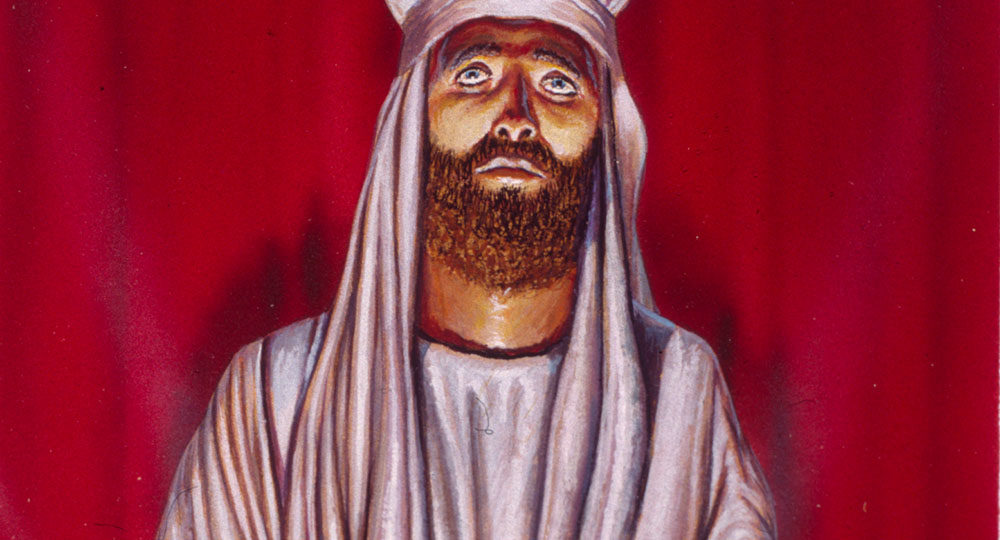
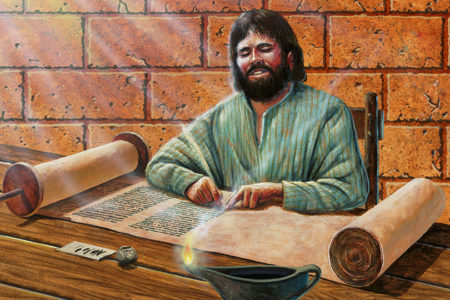
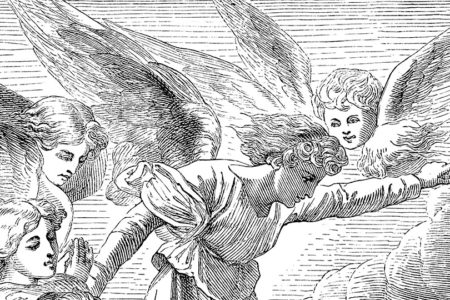
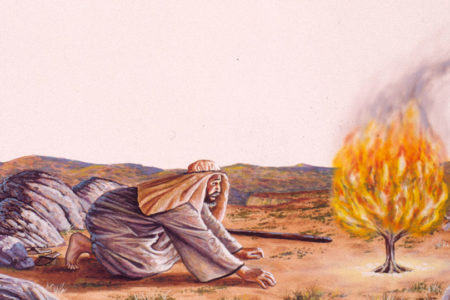
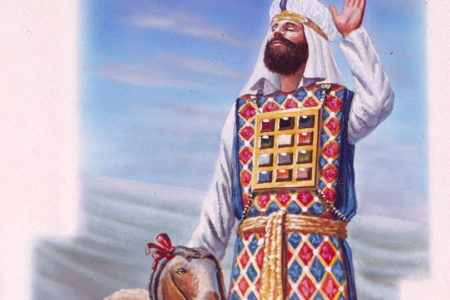
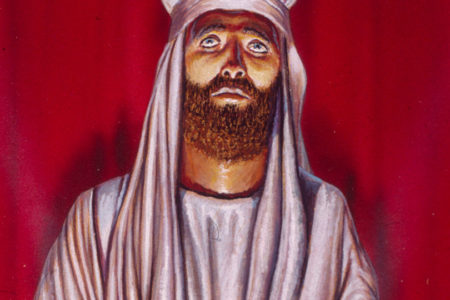



I hate to leave a comment because it requires email, etc. but this article is SO GOOD and God-glorifying, I have to leave a positive comment! 😊 Thank you very much. Jesus is BETTER, GREATER, WORTHY of our worship and praise 🙏
Thank you so much for the most detailed and Biblically well-supported explanation. I am most satisfied with this article than many I have read from other sources. Have consulted several Priests and Evangelists, none of them could enlighten me on the matter of Melchizedek as thoroughly, clearly, sensibly and convincingly as the writer of the above did. This shall be my reference from now on, and hope you spread farther and wider for the glory of God! Jesus is the Lord of lords. Well done!
May God richly bless all lovers of thé true scriptures, Amen.